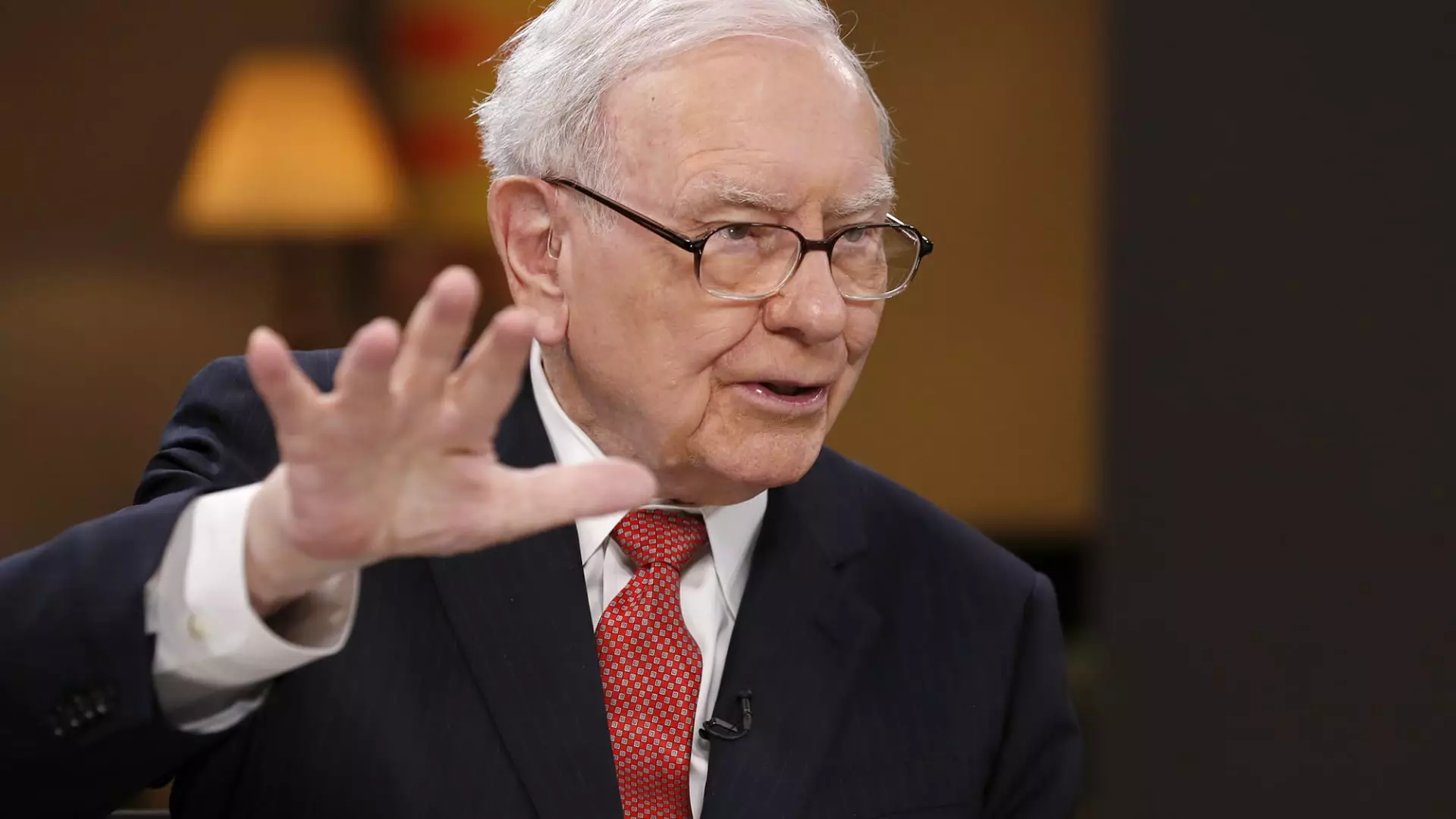Warren Buffett, a name synonymous with investment wisdom and financial acumen, has recently taken significant strides to shape how wealth is perceived, particularly in the context of intergenerational inheritance. At the age of 94, Buffett’s staunch opposition to the establishment of dynastic wealth by passing down his $150 billion fortune to his children reflects a broader ethical stance on wealth distribution and philanthropy. This shift in thinking underscores a growing awareness about the potential implications of inherited wealth, both for the heirs and society at large.
Buffett has been vocal about his belief that great wealth can lead to detrimental outcomes, such as diminished personal accountability and strained familial connections. Rather than fostering an environment where family fortunes can perpetuate a cycle of entitlement, he is advocating for a more hands-on approach to charity and social responsibility. This philosophy is not merely theoretical; it is applied in practice as he has appointed independent trustees to manage his philanthropy, ensuring that the focus remains on impactful charitable initiatives rather than the perpetuation of familial wealth.
The appointment of three independent trustees is a testament to Buffett’s foresight regarding the complexities of wealth management across generations. While his children, aged 66 to 71, have demonstrated a commendable understanding of philanthropy and money management, the future remains uncertain. Buffett’s statement that he is unsure of how future generations will weigh their responsibilities reflects a cautious optimism. He acknowledges the lessons learned from nurturing his children, yet expresses a prudent concern about their successors’ values and abilities. This potential generational disconnect reinforces his belief in independent trustees who can uphold his vision for philanthropy.
The trend toward appointing trustees emphasizes a calculated separation between familial ties and wealth management. By doing so, Buffett reinforces the notion that wealth should serve a purpose beyond individual family benefit. While his children will play a critical role in the immediate distribution of his wealth, the eventual involvement of these trustees signals the importance of ensuring that philanthropic goals remain aligned with changing societal needs.
Buffett’s commitment to philanthropy isn’t new; he started donating shares of Berkshire Hathaway stock to family foundations as far back as 2006. Over the years, he has distributed billions to these foundations, demonstrating that wealth can generate meaningful social change when channeled appropriately. He has taken the time to closely evaluate his children’s competence in managing these funds, emphasizing that they possess not only financial literacy but also a deep understanding of human behavior and charitable effectiveness.
This multi-decade observation period allowed him to cultivate trust in their abilities while also setting an example of philanthropic engagement. Buffett believes in the importance of wealth that is not merely amassed but utilized to address pressing issues in society. His actions substantiate this belief, signaling that wealth without purpose can lead to complacency or detachment from societal realities.
As we consider Buffett’s approach to wealth and inheritance, it raises crucial questions about the future of generational wealth and its implications for society. Buffett’s skepticism towards the longevity of familial wealth emphasizes a need for a more nuanced view of generosity. Unlike traditional paradigms that often glorify the preservation of wealth for descendants, Buffett’s model advocates for immediate and impactful contributions to society.
In doing so, he challenges the status quo, forcing us to reconsider how we define success and legacy. If the ultimate goal is not merely the accumulation of wealth but rather its strategic deployment to foster societal betterment, Buffett’s legacy may shape a new narrative about wealth—a narrative that champions collective good and prioritizes transformative giving over inherited privilege.
Warren Buffett’s insights into wealth, inheritance, and philanthropy provide a thoughtful framework for rethinking how we view financial legacies. By favoring independence in trust management and committing to sustained charitable efforts, he not only sets a compelling example for the ultra-wealthy but also poses a viable solution to the potential pitfalls of dynastic wealth. His story is one of caution and leadership, exemplifying how a deliberate philanthropic focus can lead to a richer, more equitable society.

